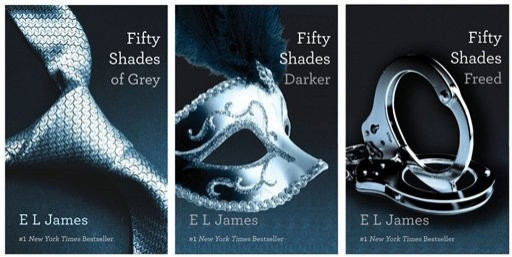'Fifty Shades Of Grey' Not The Most Challenged Book Of 2012, What Book Topped The List?

“Fifty Shades of Grey” made the American Library Association's “Top Ten List of Frequently Challenged Books” for 2012 but it did not come in at No. 1. A book that doesn't involve sex and which is meant for children took the honor.
ALA’s list of “Most Challenged” books features works that most frequently get complaints from parents, teachers and other individuals and is included in the organization's "State of America's Libraries Report 2013." The challenges include individuals requesting a book’s removal from school or library or questioning the inclusion of a work in the first place.
“Fifty Shades of Grey” came in at number four in the ALA’s Most Challenged list. The books became a global sensation in 2012 with the trilogy by E.L. James selling millions of copies and also securing a movie deal with Universal Pictures. The trilogy revolving around the bedroom antics of Christian Grey and Anastasia Steele gave rise to the concept of “mommy porn” and also led publishers to mine “Twilight” fan fiction for another potential bestseller.
The inclusion of “Fifty Shades of Grey” came as a no-brainer as many challenged the book’s inclusion in libraries. James’ book was challenged for its offensive language and sexually explicit content. While there were some libraries that took the book off the shelves, several decided to re-stock the novel due to popular demand and media backlash.
While “Fifty Shades” may seem like the book most likely book to top the “Most Challenged” list. that honor goes to Dav Pilkey’s “Captain Underpants” series. The series of children’s books involving fourth graders George Beard and Harold Hutchins and Captain Underpants was challenged for offensive language and being unsuited for the age group. “Captain Underpants” has been a frequently challenged series and was featured on ALA’s list in 2002, 2004 and 2005.
The second-most challenged book was Sherman Alexie’s “The Absolutely True Diary of a Part-Time Indian.” Alexie’s 2007 young-adult novel is the coming-of-age story of a Native American teenager named Arnold Spirit Jr. and some of the reasons why it gets challenged include the book’s exploration of sex and usage of profanity. The ALA also cites drug/alcohol use, suicide and being unsuited for the age group as reasons for the inclusion of Alexie’s novel on the “Most Challenged” list.
Pilkey joked about the dubious honor, which also included Toni Morrison’s “Beloved,” saying in a statement, “It's pretty exciting to be on a list that frequently features Mark Twain, Harper Lee, and Maya Angelou.” Twain’s “Adventures of Huckleberry Finn,” Lee’s “To Kill a Mockingbird” and Angelou’s “I Know Why the Caged Bird Sings” are among the most frequently challenged books since the ALA’s Office for Intellectual Freedom began recording the data in 1990.
Associated Press notes that the number of challenges is due, in some part, to the success. “Captain Underpants” was the most challenged as a new book, while a former chart-topper “Harry Potter” dropped off the list. Pilkey also cautioned about taking the list at face value, believing parents shouldn’t be discouraged from letting their children read “Captain Underpants” and deciding for themselves what books may be inappropriate.
The American Library Association’s “Top Ten List of Frequently Challenged Books” can be viewed below.
- “Captain Underpants” by Dav Pilkey (offensive language, unsuited for age group)
- “The Absolutely True Diary of a Part-Time Indian” by Sherman Alexie (offensive language, racism, sexually explicit, unsuited for age group)
- “Thirteen Reasons Why” by Jay Asher (drugs/alcohol/smoking, sexually explicit, suicide, unsuited for age group)
- “Fifty Shades of Grey” by E. L. James (offensive language, sexually explicit)
- “And Tango Makes Three” by Justin Richardson and Peter Parnell (homosexuality, unsuited for age group)
- “The Kite Runner” by Khaled Hosseini (homosexuality, offensive language, religious viewpoint, sexually explicit)
- “Looking for Alaska” by John Green (offensive language, sexually explicit, unsuited for age group
- “Scary Stories” by Alvin Schwartz (unsuited for age group, violence)
- “The Glass Castle” by Jeannette Walls (offensive language, sexually explicit)
- “Beloved” by Toni Morrison (sexually explicit, religious viewpoint, violence)
© Copyright IBTimes 2025. All rights reserved.






















